ASX worst week in 6 months; AMP surges
ASX clocks worst week in 6 months amid a rout in US tech giants after they reported earnings; AMP jumps on takeover news.
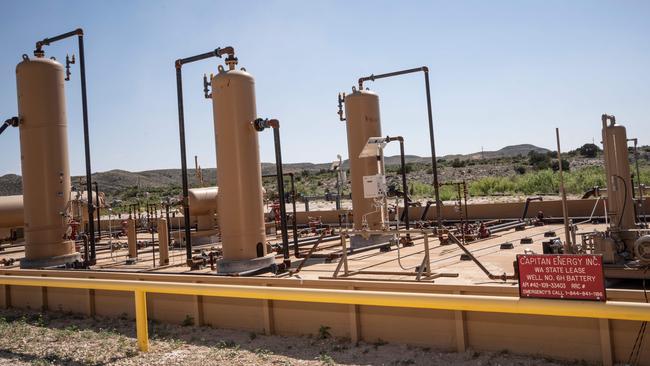
- Westpac CEO extends contract
- AMP confirms Ares talks
- Atlassian revenue climbs 26pc
- US economy surges 33.1pc
That’s all from the Trading Day blog for Friday, October 30. The ASX suffered its worst week in 6 months, after reversing an early gain of 0.4pc on Friday, as US futures dived amid a rout in tech giants including Apple, Amazon, Facebook and Twitter after they reported their earnings in afterhours trading. AMP surged after confirming an offer from Ares Management.
Damon Kitney 6.56pm: Hostplus’ Sicilia sticks to his path
The Camino Frances is the most famed of a large network of ancient pilgrim routes stretching across Europe, joining at the tomb of St James in the city of Santiago de Compostela in northwest Spain.
Last year Sam Sicilia celebrated the first sabbatical of his business life by walking the 700km trek with wife Robyn, starting at the city of Roncesvalles on the Spanish side of the Pyrenees mountains. Together they spent 42 days in almost near isolation. It prepared them for what was to come.
“Probably in hindsight it was good prep work. It was a bonding. We may have been in a weaker situation had this happened without that event,” Sicilia tells The Weekend Australian.
The “this” he speaks of is the storm that raged around the Hostplus chief investment officer in late March and throughout April as the COVID-19 pandemic allegedly crippled the leading industry superannuation fund whose performance had made him a rock star of the sector.
Sicilia, who boasts a PhD in mathematical modelling from Melbourne’s Monash University, joined Hostplus in March 2008 when it was only $7bn in size. Twelve years later, in March this year, it was worth $54bn.
The Hostplus balanced fund had been named the best-returning fund of its kind in the market over three, five and seven years by ratings agency SuperRatings. But by mid-April, its performance had been trounced by the sharemarket sell-off.
James Kirby 6.29pm: Bleeding stalwarts lure foreign predators
Is it a coincidence that we have a rush of overseas players piling into our market at the one time? Within four working days we heard that two of the stalwarts of the ASX, Coca-Cola Amatil and AMP, are now takeover targets.
Talk about timing.
Until very recently the greatest defence some of our bigger, less impressive companies could mount from takeover was not a strong operating performance, rather it has been an expensive share price.
Now with a recession taking its toll and a sharemarket drifting in the lead-up to the US election, the overseas predators smell blood in the water.
For local shareholders — and there are 730,000 shareholders in AMP alone — the issue will be whether to hand over these companies at what may well turn out to be cheap prices.
Just now it looks like both of these bids could go through unchallenged, but economic conditions can change quickly.
Bridget Carter 4.55pm: Maas Group raising $144m
DataRoom | NSW-based construction materials, equipment and services company Maas Group will raise $144m for its initial public offering as it heads to the boards with a $530 million market value.
The company will sell shares at $2 each and the business will be worth $608m including debt.
The pricing equates to 9.4 times the group’s earnings before interest, tax, depreciation and amortisation during the 2020 financial year and 15.7 times its net profit.
Maas Group reported $64m of EBITDA in the 2020 financial year.
Fund managers were told that the interest in the cornerstone process was from high quality institutions, with demand in excess of available stock.
About half the deal, excluding the employee offer, which was already committed, had already been allocated.
Dubbo-based Maas Group was founded in 2003 by Wes Maas, who plans to retain around 55 per cent of the company after the IPO, while other founding shareholders will retain about 15 per cent.
Pre IPO convertible notes will convert to around $23m of shares at the IPO, which effectively takes the offer size to $167m.
The company will use $82m to reduce debt and $62m is part of the secondary selldown by the founding shareholders, taking the free float to about 25 per cent.
Maas Group is understood to have been embarking on a cornerstone process, with meetings with investors for that process starting on Monday.
The management roadshow begins next week.
It comes after DataRoom flagged on Friday that the company was looking to list at between 15 and 16 times its net profit as the cornerstone process unfolded.
Moelis and Morgans are working on its float plans, which have been on the agenda since last year.
Earlier expectations were that the company’s market value could be about $500m once listed.
Maas Group has tangible assets worth $340m, including 20 quarries and a large pipeline of housing lots, which drives demand for services in other parts of its civil construction and equipment hire business.
Among its areas of service are plant hire, civil construction and property development.
4.33pm: Worst week in 6 months for ASX
Australia’s share market has suffered its worst week in 6 months amid a pullback in global markets.
After rising 0.4pc to an intraday high of 5986.6 in early trading after offshore gains, the index dived 0.6pc to close at a three-week low of 5927.6 amid a rout in US tech giants.
The index gained 1.9 per cent for the month but gave up most of a 7.4pc during rise during the month as global markets suffered from worsening trends in COVID, fresh lockdowns in Europe and the lack of new fiscal stimulus in the US.
AMP rose 20pc on a takeover bid from Ares Management, banks rose 0.6-1.3pc, Fortescue Metals jumped 4.5pc after a record production report yesterday and Resmed surged 9.5pc on a strong sales report.
But most sectors lost ground, with high-priced Tech, Industrials, Consume Discretionary, Staples, Health Care and Communications stocks underperforming as US futures dived after tech giants reported afterhours.
S&P 500 futures fell 1.5pc and Nasdaq futures lost 1.9pc as Apple fell 4.5pc, Amazon fell 1.9pc, Facebook fell 2.7pc and Twitter fell 18pc, although Alphabet rose 6pc after reporting.
The Australian dollar was steady, just 0.07pc weaker against the US dollar by the close of the ASX session, trading arond US70.24c.
Lachlan Moffet Gray 3.54pm: Sigma general manager charged with insider trading
Sigma Healthcare general manager Michael Story has been charged with two counts of insider trading relating to the cancellation of a distribution agreement between pharmacy wholesaler and Chemist Warehouse.
The charges stem from an announcement in July 2018, when Sigma - which operates the Amcal Chemist brand - announced that it would no longer serve as wholesaler to retail giant Chemist Warehouse as of June 2019, with shares in the company closing 40 per cent lower by the end of that day.
It is alleged that on May 9 2018 Mr Story, having inside knowledge relating to the wholesale agreement, sold 645,047 shares in the company, worth just under $500,000.
Mr Story then sold off a further 250,000 Sigma shares on June 21 2018, worth just over $121,000 at the time.
ASIC said that due to Mr Story’s alleged position of insider information, his actions represented a violation of the Corporations Act.
“ASIC alleges that, at the time he disposed of the two tranches of Sigma shares, Mr Story was in possession of inside information relating to the status of negotiations to renew the wholesale supply agreement between Sigma and CWG,” ASIC said.
Sigma responded to ASIC’s announcment saying that while it is not party to the proceeding it is taking the matter seriously and has been assisting ASIC with its enquiries.
“Sigma is committed to upholding high standards in corporate governance,” the company said in a statement to the market.
“Michael remains an employee of Sigma at this point in time. Sigma will make no further comment pending the outcome of the court proceedings.”
Lachlan Moffet Gray 2.30pm: Credit card debt on the rise
Australian households are still ploughing money into savings but are begging to spend again, with new data showing credit card debt is on the rise.
Credit card debt being taken on by households increased 0.4 per cent in September compared to August, to just over $29.4bn, according to the latest APRA data.
It’s a reversal of the recent trend of Australians paying down debt, with the RBA saying in September that $5.5bn worth of credit card debt had been paid off since March.
In the month to September, household deposits with the banks increased by $16.5bn – or 1.5 per cent – to $1.08trn.
APRA said the increase was, “likely supported by JobKeeper and tax refunds”.
Deposits from “general government and non-financial businesses” also increased.
Overall, deposit liabilities on the books of the banks have increased by 11.5 per cent or $242.9bn since February across all categories of depositor.
Although household savings continued to tick up, credit card debt being taken on by households increased, with credit card assets worth $29.424bn on the books of the banks, up 0.4 per cent on August.
John Durie 1.40pm: BP to shut Kwinana refinery
BP is to cease production at its Kwinana refinery in Western Australia and convert it to a fuel import terminal, saying it is no longer economically viable.
The move is a new blow to the federal government’s energy security policy, and comes amid growing pressure on refinery operators in Australia.
It follows threats by Viva and Ampol to shut their Geelong and Brisbane refineries.
Energy Minister Angus Taylor has attempted to keep the refineries operating by imposing an import duty.
In a statement BP said “it will cease fuel production at its Kwinana Refinery and convert it to an import terminal, helping to ensure ongoing security of fuel supply for Western Australia”.
The refinery, near Fremantle, has provided fuel for Western Australia for 65 years.
“However, the continued growth of large-scale, export-oriented refineries throughout Asia and the Middle East has structurally changed the Australian market,” BP added.
1.38pm: Japara Healthcare sinks on update
Shares in aged-care provider Japara Healthcare have lost ground in afternoon trade after the company said the funding environment continued to present challenges while occupancy remains below historic levels.
Cost and revenue implications from COVID-19 remained uncertain, the company said in a statement to the ASX.
“In this environment, with numerous uncertainties, it continues to prove difficult to provide reliable earnings guidance,” the statement said.
“Japara looks forward to the release of the Final Report from the Royal Commission into Aged Care Quality and Safety in February 2021 which we hope will provide much needed direction, confidence and support for the sector, including recommendations as to appropriate funding to provide high quality care.”
Japara shares last down 1.3 per cent at 38c.
12.15pm: Janus Henderson lifts AUM
Global funds management giant Janus Henderson has declared a quarterly dividend of US36c a share as it unveiled a 6 per cent increase in assets under management to $US358.3bn compared to the prior quarter, reflecting positive markets.
That was partially offset by net outflows of $US2.9bn, the company said.
“Our third quarter results reflect solid long-term investment performance, improved flows, strong financials and a continuation of returning excess cash to shareholders,” said chief executive Dick Weil.
“More importantly, we are making excellent progress toward our goal of building a strong and resilient foundation to support profitable growth.
“We are encouraged by the flow momentum we are seeing in several areas of the business, the unified culture of the firm, the ongoing efforts to simplify the way we operate our business and the support of new growth initiatives.”
12.03pm: ASX turns down at midday
Australia’s share market turned down at midday amid a rout in US tech giants.
The S&P/ASX 200 fell 0.2pc at 5949.4 after rising as much as 0.4pc to an intraday high of 5986.9 after the S&P 500 rose 1.2pc overnight.
While the overnight bounce on Wall Street paused the de-risking that slammed the local bourse on Thursday, US index futures fell amid a dive in most of the US tech giants that reported after the New York close.
S&P 500 futures fell 1pc and Nasdaq futures dived 1.6pc, with Amazon down 1.8pc, Apple down 4.2pc, Facebook down 2.8pc and Twitter down 18pc after their results.
Alphabet bucked the US tech selloff but pared a 10pc rise to 6pc. There is a risk of profit taking in US tech stocks before an expected capital gains tax hike if Democrats win the US election.
The S&P/ASX 200 would be down more if not for strong gains in the financial sector as AMP surged up to 22pc after confirming a takeover offer from Ares Management.
The surge in AMP rubbed off on banks with CBA up 1.6pc and ANZ up 1.2pc.
Fortescue surged 4.1pc after reporting record iron ore shipments in its first quarter results on Thursday.
ResMed jumped 9.3pc on a stong first quarter sales report overnight.
11.37am: Citi retains buy on ANZ
Brokerage Citi keeps its “Buy” rating and $23.75 target price on ANZ saying the big four lender remains a play on improving credit quality.
However “declining underlying core profit” will keep ANZ’s discount to peers intact unless there is a meaningful change in the outlook, Citi says.
Comments follow ANZ on Thursday delivering a 42 per cent drop in FY20 cash earnings of $3.76bn, matching Citi’s and consensus estimates ($3.77bn).
While the second half dividend was sharply cut 2H20 dividend of 35c a share also met expectations.
Citi said ANZ’s credit quality indicators “were exceedingly good”
“Closely watched by the Market, key indicators exceeded expectations including (around) 80-85 percent of expired deferred loans recommenced repayments,” Citi said.
Citi said flat cost growth is expected to be an ongoing feature of ANZ results ns but revenue growth is emerging as a “serious concern” looking forward in the face of an ultra-low interest rate environment. ANZ last traded at $18.84, up 14c.
11.20am: Big tech numbers lack some punch
Is Big Tech invincible? The numbers released on Friday tell a complicated story.
For the second time in three months, Apple, Amazon.com, Facebook. and Google parent Alphabet reported results the same day. Much smaller but highly influential Twitter joined the crowd with its own report. The numbers were predictably huge, and largely ahead of what analysts were expecting to see.
Yet investors largely gave them a thumbs down. Alphabet shares jumped nearly 7pc after hours, but it was the only one of the five to make gains following their respective reports.
Having a low bar helps; Alphabet’s shares have risen only 16pc year to date compared with the average 56pc gain by Apple, Amazon and Facebook. The company also saw a sharp bounceback for its core Google advertising business, which reported its first-ever decline in the second quarter. It also announced plans to turn its Google Cloud business into a separate reporting segment starting with its fourth-quarter report. Amazon’s share price surged 118pc in 2015 when the e-commerce giant started doing the same for its AWS unit.
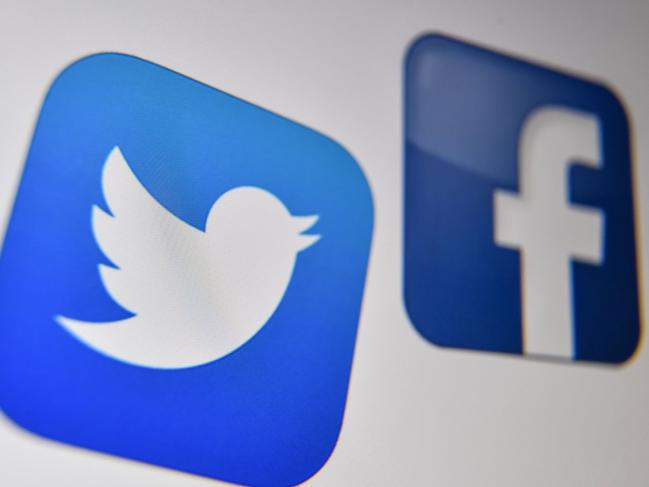
Apple, by contrast, brought the day’s biggest disappointment, though not in its results for the quarter ended September 26, which included better-than-expected revenue despite a delay in the launch of this year’s iPhones. The company declined to give a revenue forecast for the December period, which several analysts expect to kick off a “supercycle” of 5G iPhone sales. Analyst Toni Sacconaghi of Bernstein said Apple would need to guide expectations to or above the $US101 billion in revenue Wall Street had targeted for the quarter “for investors not to be disappointed.”
Amazon and Facebook also posted strong growth for the third quarter while adopting a cautious tone for what lies ahead. For Amazon, that came in the form of an operating income projection for the fourth quarter that was below Wall Street’s target. Results for the company’s closely watched AWS cloud business were also only in line with the Street’s projections. Facebook doesn’t give specific forecasts, but Chief Financial Officer David Wehner projected more headwinds for 2021, which will include changes to Apple’s mobile operating system that could make life harder for advertisers, as well as “the evolving regulatory landscape.”
The last speaks to the biggest risk facing the tech sector’s giants -- one that will linger no matter the outcome of next week’s US election. The problem is that regulators and lawmakers think Big Tech is too big and too powerful. The combined $US228 billion in revenue just reported by Apple, Amazon, Alphabet and Facebook in the midst of a worsening pandemic won’t help them convince critics otherwise.
Dow Jones Newswires
11am: Allianz to pay $10m back to customers
ASIC has secured $10m in customer remediation from insurer Allianz, on behalf of about 31,500 people who may have been mis-sold insurance products.
The corporate watchdog said that customers had fallen victim to the insurer’s misconduct, and were either sold insurance they weren’t eligible to make a claim on, were only partially paid out on a travel claim, or had paid a premium on Expedia websites, higher than for a policy sold on a standalone basis.
“ASIC has taken steps to ensure customers are remediated in full for these conduct failings,” said acting ASIC chair Karen Chester.
“Insurers need to be careful to make sure that they don’t mislead consumers into thinking they have insurance cover for something when they don’t.
“ASIC has not only initiated civil proceedings concerning an aspect of the conduct, but ensured more than 31,000 consumers are fully remediated.”
Lachlan Moffet Gray 10.50am: NAB starts heading back to the office
NAB employees will begin to return to commercial buildings outside Victoria as national COVID-19 infection rates remain subdued.
In an email to colleagues this week NAB group executive for people and culture Susan Ferrier encouraged staff to return to the bank’s office buildings in line with government advice and social distancing protocols.
“Given each state is managing their response to COVID-19 differently, our approach will not be uniform across Australia,” she wrote, adding that in Melbourne, advice was for people to work from home if possible.
“Our plans will also be dependent on continuing to adhere to social distancing requirements, which means reduced capacity in most buildings and the need for us all to continue to use our desk booking tool.
“By returning to the office, we want to start again unlocking the benefits of in-person collaboration, such as better innovating for customers, learning from each other, problem solving together, mentoring and building our high-performance culture.”
Ms Ferrier said NAB “will not be returning to the way things were before the pandemic” and the pandemic had challenged all to think differently.
Although the exact extent to which each building will be occupied is not known, NAB anticipates that its Adelaide HQ will return to about 40 per cent capacity on any given weekday. The desk booking system will record the day and length of time an employee spends at the work space, meaning it can be used in contact tracing efforts.
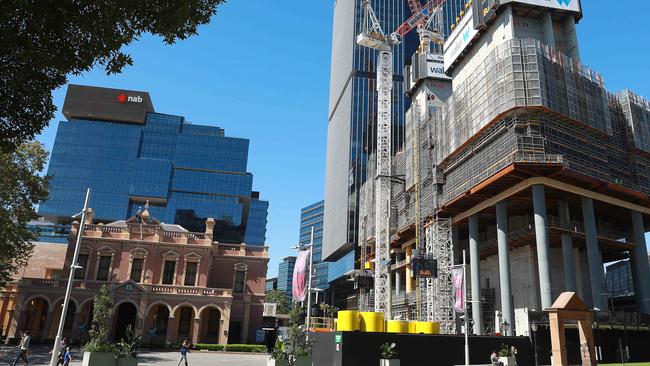
Ewin Hannan 10.40am: 7-Eleven pays back $173m to workers
Major franchisor 7-Eleven has paid back more than $173m owed to thousands of current and former employees, new figures released by the Fair Work Ombudsman show.
Between September 2015 and February 2020, 7-Eleven paid nearly $144.5m in wages, nearly$19.5m in interest, and $9.6m in superannuation owed to workers.
The regulator said there were 7,926 paid claims by 4,043 individual claimants, and the average payout was $21,903.96.
A FWO inquiry found several 7-Eleven franchisees had been deliberately falsifying records to disguise the underpayment of wages and that 7-Eleven’s approach to workplace matters, while seemingly promoting compliance, didn’t adequately detect or address deliberate non-compliance.
The FWO brought 11 litigations against 7-Eleven franchisees resulting in courts awarding more than $1.8m in penalties against them, including for operating unlawful cash-back schemes, paying unlawful flat rates to workers, and falsifying records.
As part of a compliance deed, 7-Eleven put in place a biometric time recording system across all its Australian stores, requiring employees to clock in and out with a thumbprint, which is cross-checked against employee facial recognition images and store rosters to enable more accurate recording of working hours.
10.30am: ASX opens higher, led by AMP, energy
The ASX rose 0.33 per cent to 5980.2 in early trade on broad-based gains, with Commonwealth Bank up 0.4 per cent and BHP 0.6 per cent higher.
AMP was the best performer of the session so far, jumping 21 per cent before dipping back to 14.8 per cent higher after confirming reports it had received a takeover offer from private equity firm Ares Management.
Sleep device manufacturer ResMed was up 7 per cent after announcing strong quarterly results helped by mask and ventilator demand, while glove maker Ansell was up 2.54 per cent after lifting its full year guidance.
The energy sector is the best performing sector despite a 3.8 per cent drop in the price of Brent to $US37.65 a barrel.
Woodside is up 1.5 per cent, Santos is 2 per cent higher and Oil Search is up 1.5 per cent.
Industrials are lower, Transurban last down 0.6 per cent while Sydney Airport is down 1.4 per cent.
10.10am: AMP shares surge 21pc on takeover bid
AMP shares surged 21pc to a six-week high of $1.55 after the company confirmed reports that it had received an indicative non-binding takeover bid from private equity firm Ares Management.
The high was close to the 100 and 200-day moving averages at $1.59 and $1.65 respectively.
These lines now offer resistance. Tentative support may be at the recent peak of $1.465.
AMP last up 17pc at $1.50.
10.05am: Westpac extends CEO King’s contract
Westpac’s newish chief executive Peter King has been moved to an evergreen contract, removing the two-year term under the existing agreement.
The move suggests Mr King, the former chief financial officer, is committed to a longer term run at Westpac. Mr King took charge on an interim basis following the sudden exit of Brian Hartzer in the wake of Westpac’s Austrac allegations. In April, Mr King was named in the role on a permanent basis under new chairman John McFarlane.
Mr McFarlane on Friday said the board and Mr King had had discussions and Mr King confirmed he is committed to a “multi-year plan to turn the bank around”.
“Reflecting these discussions his employment contract has been amended to a standard 12-month notice period,” Mr McFarlane said.

The move comes ahead of Westpac’s full year results release next week. It also follows the hefty $1.3bn penalty with financial crimes regulator Austrac.
“In the short time Peter has been CEO, he has made a significant contribution to Westpac, in a year of unprecedented change,” Mr McFarlane said. “He has guided Westpac through the challenges of COVID-19 as well as settling the Austrac matter”.
“His strategy reset is already driving fundamental change to how the company operates with clearer accountability, faster decision making and a focus on improving risk management. He has also refreshed the executive team and refocused the dank on its core markets and products”.
“Given the program of work underway, we are delighted to have leadership continuity,” Mr McFarlane said.
Mr King said: “It is a privilege to lead Westpac. While I am pleased with what we have achieved over the last six months, we have a significant agenda ahead that requires a longer-term commitment than two years. I am determined to see Westpac return to a leadership position.”
Mr King’s contract terms remain unchanged, except for the removal of the two-year term.
Shares in Westpac last traded at $17.98, up 3c.
10.00am: Apple shares sink after iPhone sales fall
Apple shares were sent reeling on word of a steep drop in sales of iPhones, which are at the heart of the tech titan’s money-making engine.
Apple profit fell 7 percent to $US12.7 billion in the recently ended quarter, the Silicon Valley-based colossus said in its earnings release.
The California tech giant’s total revenue edged up from last year’s level to $US64.7 billion in the fiscal fourth quarter, but revenue from iPhone sales -- the major income driver for Apple -- slid some 20 percent from a year ago, unsettling investors.

The company’s share price nosedived more than four percent in after-hours trading.
“iPhone is the cash cow and the driver of pretty much every add-on service Apple has out there,” said analyst Patrick Moorhead of Moor Insights and Strategy.
“Everything is tied to that.”
Apple has made a priority of selling apps, games, subscriptions and music to iPhone users in recent years to break its dependence on handset sales.
AFP
9.58am: What’s impressing analysts?
Abacus Property cut to Neutral: JPM
Atlas Arteria cut to Neutral: GS
BWP Trust cut to Neutral: JPMorgan
Deterra Royalties started at Sell; $3.40 price target: Citi
Dexus cut to Neutral: JPM
GPT Group cut to Hold: Jefferies
IOOF Holdings raised to Buy: Bell Potter
JB Hi-Fi raised to Neutral: Citi
SCA Property rRaised to Overweight: JPM
Stockland raised to Hold: Morningstar
Vicinity Centres raised to Overweight: JPM
Waypoint REIT raised to Overweight: JPM
Lachlan Moffet Gray 9.56am: Price dive hits Origin revenues
Origin Energy says its revenue dived in the last quarter as gas prices and volumes fell amid COVID-19 pandemic uncertainty.
In its quarterly report, the energy retailer and natural gas extractor said that commodity revenues fell by 39 per from $610.2m to $373.9m in the September quarter.
Driving the decline was a correlated fall in realised natural gas prices and a slight decrease in sales volumes.
The average price obtained for a gigajoule of natural gas fell 36 per cent from $10.21/GJ to $6.52, while integrated gas sales fell four per cent to 57.4 petajoules.
Origin Energy CEO Frank Calabria said long-term contracts helped buoy sales but a declining oil price had started to trickle through to the Australian liquefied natural gas market.
“Gas production was steady for the quarter, however as expected, realised prices were lower as the lagged impact of oil prices on Australia Pacific LNG’s contracts started to flow through to revenues,” Mr Calabria said.
9.42am: ASX to rise but US tech dives after hours
A positive Australian sharemarket reaction to offshore gains may be tempered by a mostly-negative share price reaction to results from US tech giants in after hours trading.
Overnight futures relative to fair value suggest the S&P/ASX 200 will open up 0.5pc at 5996. It fell as much as 1.9pc to a three-week low of 5940 on Thursday before closing down 1.6pc at 5960.3.
After plunging 3.5pc on Wednesday after France and Germany announced new coronavirus lockdowns, the S&P 500 rose 1.2pc to 3310 as Alphabet, Amazon, Apple, Google and Twitter rose before their results after the close.
But while mostly beating earnings estimates, all of these tech heavyweights bar Alphabet dived in after hours trading, suggesting they’re results weren’t good enough to justify their valuations. NYFANG+ is up 117pc from its March low.
Twitter dived 17pc after user growth missed estimates, Apple fell 5.3pc as iPhone revenue missed estimates, Amazon fell 2pc after flagging higher than expected COVID spending despite a better-than-expected sales forecast.
But on the positive front, Alphabet surged 8pc after an increase in sales growth fuelled by digital advertising. Profit taking remains a risk in US tech stocks before an expected capital gains tax hike if Joe Biden wins the US election.
S&P 500 futures are down 0.2pc and Nasdaq futures are down 0.6pc in after hours trading.
But the retreat in volatility last night has at least avoided any immediate need for accelerated derisking in global markets.
There will also be some focus on takeover potential in Australia after AMP confirmed Ares Management is made an offer.
Australia won’t be immune to a reassessment of the global economic outlook amid worsening coronavirus trends and lockdowns in Europe as well as US election related volatility in global markets.
But Australia’s vastly better trends in COVID, as well as fiscal stimulus and expected RBA easing and QE next week should see domestically focussed companies outperform.
9.40am: Ansell upgrades earnings forecasts
Glove manufacturer Ansell has upgraded its full-year guidance ahead of its AGM next week, telling the market that the first four months of the new financial year had been strong, despite the continued uncertainties arising from the coronavirus crisis.
The company said in a statement to the ASX that it now expects earnings per share to be in the range of $1.35 and $1.45, up from its previous guidance of between $1.26 and $1.38.
Ansell said that production volumes and sales had been better than anticipated and exchange rates had been more favourable than what was originally budgeted.
Still, the company said that “considerable uncertainty” remained, given the risk of the evolving impact of the coronavirus crisis, which has the potential to disrupt supply chains, while economic weakness and FX volatility also had the potential to impact the company’s performance.
9.17am: ResMed payout follows profit lift
Sleep device maker ResMed has declared a quarterly dividend of US39c per share, as it booked a 27 per cent increase in net operating profit for the September quarter.
The profit lift was thanks to a lift in demand for masks and ventilators due to COVID-19.
“Our first quarter results reflect solid performance and positive trends across our business,” said chief executive Mick Farrell said.
“During the quarter, we continued to support the global COVID-19 pandemic response, providing ventilators, masks, and circuits to countries in need around the world.
“In our core markets of sleep apnoea, COPD and asthma, we are encouraged by the sequential improvement in new patient volume, as well as the ongoing strong adoption of our mask and accessories resupply programs.”
9.14am: Western Areas cuts production guidance
Western Areas lowered guidance for annual nickel production after encountering setbacks at its Flying Fox mine in Western Australia.
Western Areas said it now expects to produce between 17,000 tonnes and 19,000 tonnes of nickel in concentrate in the 12 months through June, down from prior guidance for 19,000-21,000 tonnes.
Expectations for unit production costs were raised to between $3.50 and $4.00 per pound, from $3.25-$3.75/lb.
Western Areas said the revised guidance reflects the inclusion of increased lower grade ore in the 2021 fiscal year, following some isolated seismicity encountered in the lower T6 zone of the Flying Fox mine.
“The issues encountered have impacted nickel production and costs to date this financial year, and require the remaining life of mine for Flying Fox to be rescheduled, which has resulted in the deferral of some of the higher grade material until later in FY 2021 and into FY 2022,” Western Areas said.
Managing Director Dan Lougher said the company is working with its mining contractor to reduce operating costs and maximize cashflow generation over Flying Fox’s remaining life.
Dow Jones Newswires
8.55am: Apple shares down as it skips guidance
As expected, Apple refrained from projecting revenue for the December quarter on the conference call that followed the release of its earnings.
Chief Financial Officer Luca Maestri did however say the company expects iPhone sales to grow in the quarter relative to the same period a year earlier, given the launch of the new devices. Wall Street already was targeting 7pc growth year over year for the period, so that was no surprise.
Mr. Maestri added that services would still grow in the double-digit range--which was also already baked into Wall Street’s predictions.
Hence, Apple’s shares remain down 5pc after hours, as investors will likely question how confident the company is about what many analysts have been framing as a “supercycle” in the midst of the pandemic.
Dow Jones Newswires
8.15am: CBA fined over problem gambler
Commonwealth Bank has been ordered by the Federal Court to pay a $150,000 penalty for providing a credit limit interest to a problem gambler.
The court found the bank had breached the responsible lending provisions of the National Consumer Credit Protection Act, ASIC said.
“The penalty is for failures to take account of a notification by a customer that he was a problem gambler and to take reasonable steps to verify his financial situation before offering and approving a credit card limit increase,” ASIC said in a statement.
The National Credit Act provides consumer protections to ensure credit providers make reasonable inquiries about a borrower’s financial situation before assessing whether a loan contract is suitable for them.

8.08am: Twitter fears poll hit to ad spending
Twitter said uncertainty surrounding the US election could weigh on advertising spending in the current quarter, though it projects robust activity from brands using its platform to reach consumers in the holiday shopping season.
The forecast comes as the short-messaging company said third-quarter revenue jumped 14pc from a year earlier to $US936 million as advertisers returned to promoting events and product launches that had been grounded during the pandemic. The company also benefited from investments in its ad products including those helping buyers measure campaign performance.
Online platforms have benefited from an uptick in spending from companies looking to reach housebound consumers. This dynamic could stretch into the holidays, which could look a bit different this year, Twitter said in prepared remarks, “with a buying season that may be accelerated and even more digital than ever before.” More than 85pc of Twitter’s quarterly revenue comes from advertising.
“We have no reason to believe that September’s revenue trends can’t continue, or even improve, outside of the election-related window,” Twitter said in a letter to shareholders.
Snapchat parent Snap Inc. and Pinterest Inc. also benefited from stronger ad revenue in the September quarter and projected that growth to continue through year’s end.
Twitter said it added one million daily users from the previous quarter to 187 million, the smallest increase since late 2017, the earliest period that Twitter has provided such data. Analysts polled by FactSet had expected the user count to rise to 196 million.
Dow Jones
7.44am: AMP confirms Ares talks
AMP has confirmed it’s received an indicative, non-binding, conditional proposal from Ares
Management Corporation, a US-based company, to acquire 100 per cent of the shares in AMP by way of arrangement.
The approach was detailed today by The Australian’s DataRoom.
AMP says discussions on the proposal are at a very preliminary stage and there is no certainty that a transaction will eventuate.
AMP says it continues to progress its portfolio review announced on September 2.
“AMP has received significant interest in its assets and businesses and is assessing a range of options in a considered and holistic manner, including continuing to pursue its three-year transformation strategy, with a focus on maximising shareholder value.”
7.40am: Apple’s sales rise in pandemic
Apple benefited from a significant uptick in sales of laptops and iPads due to the pandemic, even as quarterly iPhone sales fell from a year earlier after a delay in the launch of the company’s flagship new smartphone.
The tech giant this year has largely benefited from demand for digital services, computers and other devices as workers and students around the world have stayed home due to the spread of Covid-19. The fiscal fourth quarter continued that trend.
Sales of computers, iPads and smartwatches helped buoy the company in the three-month period that ended in September, with total revenue rising 1pc, the company reported.
Wall Street analysts surveyed by FactSet, on average, expected revenue to fall for the period.
Profit fell to $US12.7 billion, or 73 cents a share, from 76 cents a year earlier, the company said. The results beat analyst expectations for profit of 71 cents a share.
The results helped Apple conclude its fiscal year with an increase in revenue and profits after both figures fell in the previous 12-month period. Apple finished its fiscal year with $US274.5 billion in revenue, a 5.5pc gain from 2019.
The arrival of the iPhone 12 in October, instead of its traditional late-September launch, delayed purchases for many consumers, intensifying the pressure on Apple to deliver outsize sales in this holiday quarter. Investor expectations for significant growth in iPhone revenue have helped push the company’s market value to over $US2 trillion.
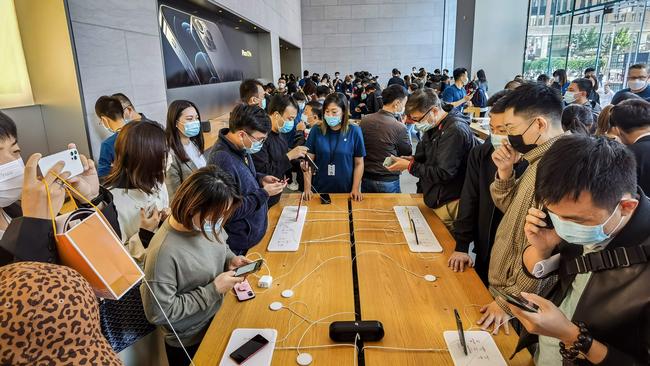
Dow Jones Newswires
7.37am: Facebook earnings show continued strength
Facebook’s third-quarter revenue climbed 22pc to $US21.47 billion, as strong digital ad spending offset a high-profile ad boycott, restrictions that reduce the efficacy of ad targeting and continued fallout from the pandemic.
Facebook reported per share earnings of $US2.71 in the three months through September, compared with $US2.12 in the year-earlier quarter, beating analysts’ average projection of $US1.90, according to data from FactSet. Facebook’s net income rose to $US7.85 billion from $US6.09 billion.
The company also announced its expectations for a strong fourth quarter. But tempering those results, Facebook Chief Financial Officer David Wehner warned of a “significant amount of uncertainty” in the coming year. While the company believes the pandemic has accelerated the shift to online commerce, he said, it faces significant regulatory threats in both the U.S. and abroad as well as limitations imposed on its data gathering and targeting by other tech giants, including Apple Inc.
The company’s operating margin stood at 37pc, compared with 41pc a year earlier, as headcount rose by a third over the past year. The number of people using Facebook products each month -- which include Instagram, Messenger and WhatsApp -- increased to 3.21 billion from 2.82 billion a year ago, up 14pc.
Following the third-quarter report, Facebook’s stock rose about 5% in after-hours trading.
Dow Jones Newswires
7.32am: Atlassian’s 1Q revenue climbs 26pc
Australia’s Atlassian Corp. reported a loss but revenue increased 26pc for the first quarter of its fiscal year.
Atlassian reported a loss of $US21.6 million, or a loss of 9 cents a share. The company logged a $US27.5 million non-cash charge.
For the comparable quarter a year prior, the company’s profit was $US69.3 million, or 28 cents a share.
Adjusted earnings were 30 cents a share. According to FactSet, analysts were expecting 27 cents a share.
Revenue rose 26pc to $US459.5 million. Analysts were expecting $US440.4 million.
The company added over 8,600 net new customers, co-Chief Executive and cofounder Scott Farquhar said in prepared remarks.
Dow Jones Newswires
7.26am: Google shares soar on gangbuster earnings
Google’s parent blasted through an earlier pandemic-fueled slow patch, returning to the steady growth that made the tech conglomerate one of the corporate world’s most stable bets.
Alphabet reported profit of $US11.2 billion, well outstripping analyst estimates. As importantly, digital-advertising revenue of $US37.1 billion was up compared with last year, marking a turnaround from a quarter earlier, when the company recorded the first drop in the category in company history.
The bright results are unlikely to earn Google any favours in Washington, D.C. Last week federal prosecutors sued the company for operating an illegal monopoly in its flagship search business. Though Google was quick to publicly deny the charges, litigation is expected to stretch on for years.
In the meantime, Wall Street cheered the results. Alphabet shares were up 9pc in after-hours trading.
“We had a strong quarter, consistent with the broader online environment, “ Sundar Pichai, chief executive of Alphabet and Google, said in a written statement.
Dow Jones Newswires
7.24am: Amazon sales surge
Amazon.com online orders continue to surge during the pandemic, with the e-retail giant projecting a bumper end to the year as it posted strong third-quarter earnings.
Amazon said third-quarter sales in the period rose 37pc to a record $US96.2 billion to generate a $US6.3 billion profit, or $US12.37 a share. Profit roughly tripled from the year-ago period when the company’s bottom line was weighed down by heavy investment in its push to one-day shipping for customers.
Wall Street expected sales of $US92.8 billion and a net profit of $US3.8 billion for the latest quarter, according to analysts surveyed by FactSet.
The scale of online shopping during the Covid-19 pandemic at times has strained Amazon, driving up staffing and costs to get goods to customers. The company said it would add 100,000 seasonal workers in the U.S. and Canada heading into the Thanksgiving and Christmas holidays ahead of an expected surge in online orders.
“We’re seeing more customers than ever shopping early for their holiday gifts, which is just one of the signs that this is going to be an unprecedented holiday season,” Amazon Chief Executive Jeff Bezos said in a statement.
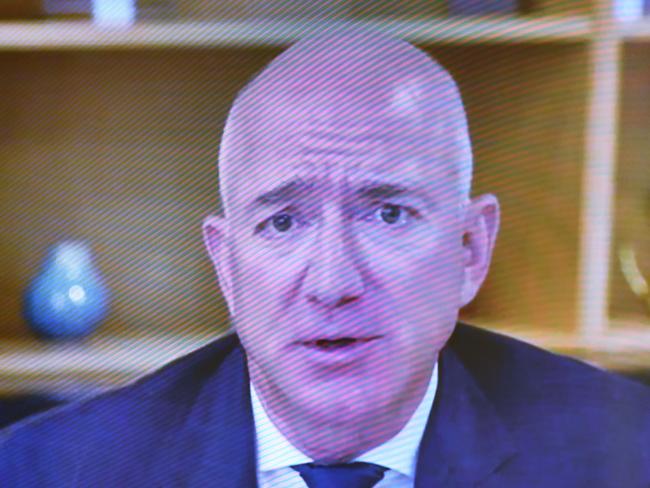
Amazon achieved the lofty sales figures even without its annual shopping event, called Prime Day, that is typically held in July and helps the company sign up new Prime subscriptions by offering members steep sales discounts. This year, the event was delayed until October as the Seattle company worked through the summer’s surge of orders.
Amazon’s results sent shares rose 1.21pc in after-hours trading.
Dow Jones Newswires
7.20am: ASX set to rebound, open higher
Australian stocks are poised to rebound after Thursday’s losses, following gains on Wall Street as the US economy expanded sharply in the third quarter.
Shortly after 7am (AEDT) the SPI futures index was up 36 points, or around 0.6 per cent.
Yesterday, the ASX fell as much as 1.9pc to a fresh 3-week low.
Brent oil is down 3.8 per cent at $US37.65 a barrel.
The Australian dollar was lower at US70.28.
7.19am: Netflix raises price of some plans
Netflix raised the monthly price of its most popular plan for the first time since early 2019, a move that comes as the streaming service competes with a growing number of cheaper alternatives.
Netflix said its standard streaming plan will now cost $US13.99 a month, up from $US12.99. Its $US8.99-a-month basic plan will remain unchanged, while the cost of its premium plan will rise to $US17.99 from $US15.99. The changes go into effect for new subscribers immediately, and current subscribers will see their fees go up within the next two months.
The price increase comes in the wake of Netflix missing its third-quarter subscriber projections amid growing competition and the continuing effects of the coronavirus on the economy. While Netflix enjoyed strong growth in the first and second quarters of this year as people stayed at home, new subscriptions slowed in the third quarter.
In a statement, Netflix attributed the price increases to the costs of creating original programming. “We’re updating our prices so that we can continue to offer more variety of TV shows and films -- in addition to our great fall line up,” the company said.
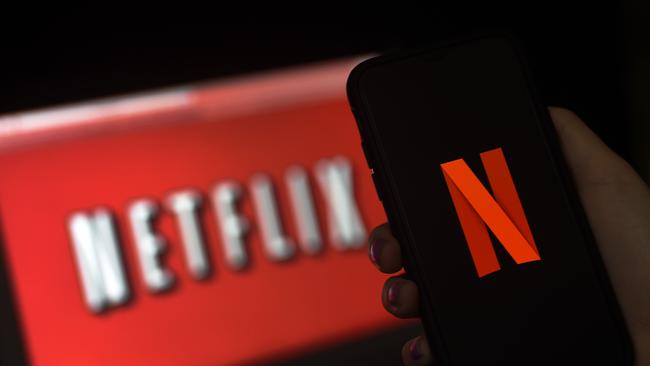
Dow Jones Newswires
7.04am: Wall Street bounces back
U.S. stocks rose, rebounding after fresh data showed jobless claims dropped and the economy expanded sharply in the third quarter.
The Dow Jones Industrial Average gained 137 points, or 0.5 per cent, as of the close of trading in New York. The S&P 500 added 1.2 per cent. Both indexes on Wednesday suffered their biggest one-day percentage declines since June.
The Nasdaq Composite advanced 1.6 per cent ahead of earnings reports from some of the biggest companies in the technology sector.
Fresh data showed that 751,000 Americans applied for initial unemployment benefits through the week ended Saturday, down from a seasonally adjusted 791,000 in the prior week. The decline is a sign that the labor market is slowly recovering, though claims remain at historically high levels.
Meanwhile, US gross domestic product for the third quarter rose at an annual pace of 33.1 per cent, the biggest gain ever. The increase followed a record drop in output earlier in the year when the virus and related shutdowns disrupted business activity across the country.
Apple, Alphabet, Facebook, Amazon.com and Twitter were scheduled to report their latest financial results after markets close, marking what may be the most important day of the current earnings season for the tech sector. The stocks have posted sweeping gains this year, with investors betting that those businesses stand to benefit during the coronavirus-pandemic lockdowns.
Tim Courtney, chief investment officer at Exencial Wealth Advisors, said he expects markets will remain volatile for the near future.
“We’re going to have volatility probably through the end of the year, probably into next year until we start to get clarification on regulation of the tech industry and whether or not it looks like a vaccine is coming,” he said.
Worries that an uptick in Covid-19 cases will lead to new lockdowns and restrictions, which could erode the pace of economic recovery, have weighed on markets this week in both the US and Europe.
The US election also remains in focus, with many investors remaining cautious about placing big bets ahead of the November 3 vote.
Dow Jones Newswires
5.30am: Wall Street up ahead of tech earnings
US stocks, rebounding after fresh data showed jobless claims dropped and the economy expanded sharply in the third quarter.
In US afternoon trade the Dow Jones Industrial Average gained 330 points, or 1.3 per cent. The S&P 500 added 1.8 per cent. Both indexes on Wednesday suffered their biggest one-day percentage declines since June. The Nasdaq Composite advanced 2.1 per cent ahead of earnings reports from some of the biggest companies in the technology sector.
Fresh data showed that 751,000 Americans applied for initial unemployment benefits through the week ended Saturday, down from a seasonally adjusted 791,000 in the prior week. The decline is a sign that the labour market is slowly recovering, though claims remain at historically high levels.
Meanwhile, US gross domestic product for the third quarter rose at an annual pace of 33.1 per cent, the biggest gain ever. The increase followed a record drop in output earlier in the year when the virus and related shutdowns disrupted business activity across the country.
Apple, Alphabet, Facebook, Amazon.com and Twitter are scheduled to report their latest financial results after markets close, marking what may be the most important day of the current earnings season for the tech sector. The stocks have posted sweeping gains this year, with investors betting that those businesses stand to benefit during the coronavirus-pandemic lockdowns.
The handful of stocks now account for a significant portion of the S&P 500 benchmark. That means investors’ perception of the health of their operations can weigh on broader market sentiment and lead to volatility in the index.
Tim Courtney, chief investment officer at Exencial Wealth Advisors, said he expects markets will remain volatile for the near future.
“We’re going to have volatility probably through the end of the year, probably into next year until we start to get clarification on regulation of the tech industry and whether or not it looks like a vaccine is coming,” he said.
Worries that an uptick in COVID-19 cases will lead to new lockdowns and restrictions, which could erode the pace of economic recovery, have weighed on markets this week in both the US and Europe.
France and Germany on Wednesday unveiled new restrictions on business and social activity, including shutting down restaurants, bars and some shops for a few weeks to stem the rising tide of infections. Leaders in both countries aimed to cushion the economic impact of the restrictions, saying factories and schools would remain open.
The US election also remains in focus, with many investors remaining cautious about placing big bets ahead of the Nov. 3 vote.
In commodities, oil extended its sell-off. Brent crude, the international gauge, retreated 4.1 per ent to $US38.02 a barrel.
Overseas, the Stoxx Europe 600 ticked down 0.1pc
In the Asia-Pacific region, stock benchmarks were mixed. The Shanghai Composite Index edged up 0.1pc while Australia’s benchmark S&P/ASX 200 declined 1.6pc.
Dow Jones
5.20am: Juul cuts valuation to $US10bn
Vaping company Juul Labs has dropped its valuation to about $US10 billion, down from $US38 billion two years ago when tobacco giant Altria Group Inc. took a 35pc stake, the company told employees.
Once one of the country’s most valuable start-ups, Juul has been pummeled over the past two years by regulatory crackdowns, lawsuits and investigations into whether it marketed its products to teens. Its sales and market share have tumbled. The company said last month that it was cutting more than half its workforce and considering pulling out of most overseas markets.
“We made some difficult decisions that impacted our short-term outlook, but we believe these choices will enable us to create value in the future,” CEO K.C. Crosthwaite said in a memo to staff Thursday.
Dow Jones
5.15am: Blowout US GDP report offers boon to Trump
The US economy posted a jaw-dropping annual rate of growth of 33.1 per cent in the third quarter, a result that had President Donald Trump cheering just days ahead of the election, but economists say the headline number obscures potential signs of trouble.
Facing a tough battle to hold on to the White House in the November 3 election, Trump seized on the data from the Commerce Department as proof the recovery he promised from the COVID-19 pandemic is underway.
“GDP number just announced. Biggest and Best in the History of our Country, and not even close. Next year will be FANTASTIC!!!” Trump tweeted, claiming his rival for the White House, Joe Biden, would favour policies that “would kill it all.” “So glad this great GDP number came out before November 3rd.”
But economists warn that the rebound in the July-September period, after the 31.4 per cent drop in the second quarter, was driven by consumer spending supported by a massive $US3 trillion in government aid, much of which has since expired.
And even that bounce is not nearly strong enough to repair the damage and get the world’s largest economy back to where it was pre-pandemic, or where it would have been if the expansion had continued at the same pace.
Biden offered a blistering analysis of the data.
“We are in a deep hole and President Trump’s failure to act has meant that Q3 growth wasn’t nearly enough to get us out of; the recovery is slowing if not stalling; and the recovery that is happening is helping those at the top, but leaving tens of millions of working families and small businesses behind,” he said in a statement.
The Commerce Department GDP figures, the first estimate of the results in the latest three months, are given at an annual rate -- a measure of the full-year result if the gain was translated over 12 months.
If the results are weighed against the preceding three-month period, as in most other advanced economies, US GDP rose a record 7.4 per cent following the record 9.0 per cent drop in the previous quarter.
GDP number just announced. Biggest and Best in the History of our Country, and not even close. Next year will be FANTASTIC!!! However, Sleepy Joe Biden and his proposed record setting tax increase, would kill it all. So glad this great GDP number came out before November 3rd.
— Donald J. Trump (@realDonaldTrump) October 29, 2020
AFP
5.20am: Oil prices slide in share rout
Oil prices dived on demand fears as more nations go into lockdown to staunch the spread of the coronavirus, while stock prices attempted a modest rebound.
Both main oil contracts fell five per cent for part of the day before clawing back some of their losses, extending this week’s meltdown to plumb four-month lows on virus-driven demand fears.
“The new lockdowns have since yesterday caused a carnage in the oil market,” said Bjornar Tonhaugen, head of oil markets at Rystad Energy. “Oil demand will lose ground as a result of the new lockdowns... Prices now naturally decline on this grim prospect,” he added.
The drop in oil prices will increase the pain on oil companies. Exxon Mobil announced it was eliminating 1900 US jobs as part of a cost-cutting drive necessitated in part by the impact of COVID-19 on oil prices.
Meanwhile, stocks were spared Wednesday’s bloodbath which saw losses of more than three percentage points in several major markets.
After spending part of the day in the red, European stocks moved higher in the afternoon after the European Central Bank signalled it would bolster its pandemic response in December.
“Traders took that as a cue to buy back into stocks,” said market analyst David Madden at CMC Markets UK.
Frankfurt ended the day 0.3 per cent higher while Paris lost its gains going into the closing bell, as did London, which is outside of the eurozone.
The ECB’s pledge step up stimulus sent the euro lower.
European equities were hammered Wednesday as the German and French governments unveiled tighter restrictions to curb soaring COVID-19 infection rates.
The moves followed weeks of exponentially rising new infections across Europe that forced governments to put fresh containment measures in place.
The deadly second wave could potentially spark another painful global recession, as businesses and economies buckle again under the restrictions, analysts warn.
“Risks of a double-dip recession are rising for the global economy,” said Agathe Demarais, global forecasting director at The Economist Intelligence Unit.
“A second wave of the coronavirus pandemic is raging across Europe, prompting several countries, including heavyweights France and Germany, to reimpose stringent measures to contain the outbreak,” she told AFP.
AFP
5.12am: Exxon Mobil to cut 1900 US jobs
Exxon Mobil said it was eliminating 1900 US jobs as part of a cost-cutting drive necessitated in part by the hit the COVID-19 pandemic inflicted on oil prices.
The US oil giant said the job cuts would primarily impact management staff in Houston, through a mix off of voluntary programs and involuntary lay-offs.
US oil prices currently traded below $US40 a barrel, more than $US15 a barrel under the level a year ago.
AFP
5.10am: Eurozone recovery ‘losing momentum’
The European Central Bank pledged to bolster its pandemic stimulus in December as surging coronavirus infections darken the eurozone’s economic outlook.
The recovery is “losing momentum more rapidly than expected” after the partial rebound seen in the summer, ECB president Christine Lagarde said after a virtual meeting of the 25-member governing council.
With risks “clearly tilted to the downside”, she said ECB governors will use next month’s updated growth and inflation forecasts to “recalibrate our instruments” to keep credit flowing in the 19-nation currency club.
“We agreed all of us that it was necessary to take action,” Lagarde told reporters in Frankfurt. “The ECB was there for the first wave, the ECB will be here for the second wave.”
The euro slid against the dollar following the pledge by the ECB to step up its support for the eurozone economy, falling to $US1.1661 from $US1.1746 late on Wednesday.
The promise of more monetary easing comes a day after France and Germany joined Italy and Spain in introducing new shutdowns to halt a second COVID-19 wave, set to inflict more economic pain.
AFP
5.08am: Brazil’s Vale posts profit in Q3
Brazilian mining giant Vale posted net earnings of $US2.91 billion in the third quarter, due to an increase in iron ore prices in the face of strong Chinese demand.
According to the report of financial results for the July to September period, the profit is almost three times that of the second quarter ($US995 million) and almost double that of the same period in 2019.
The company reported a net first-quarter profit of $US239 million. Vale attributes its strong performance to a 27 per cent increase in the average reference price of iron ore during the third quarter, compared to the second quarter.
The increase was because “Chinese demand reacted strongly to government stimulus and supply chain disruptions, which led to higher prices during the quarter due to reduced iron ore availability,” according to the report.
Vale, one of the world’s biggest iron ore miners, also resumed dividend payments to shareholders in the third quarter, with a total of $US3.327 billion corresponding to the company’s performance in the first half of 2020.
Vale had not cut dividend checks for shareholders since the Brumadinho disaster in January 2019, when a dam collapsed at one of its mines in the Brazilian state of Minas Gerais.
AFP
5.06am: Oil giant Shell rebounds into profit
Anglo-Dutch oil titan Royal Dutch Shell logged third-quarter net profit of $US489 million (415 million euros), rebounding after a vast coronavirus-driven loss in the prior three months.
Profit after tax for July-September was boosted by steadier oil prices and contrasted with a vast net loss of $US18.1 billion in the second quarter, when Shell was slammed by COVID-19.
Earlier this year, oil prices dropped off a cliff -- and even briefly turned negative -- as airlines grounded planes worldwide, businesses closed their doors and the world economy tanked into a downturn.
Crude futures also crashed on the back of a vicious price war between key producers Saudi Arabia and Russia.
But in the third quarter, Shell was boosted by a modest recovery in global crude demand and the more stable oil market, having taken a colossal $US16.8-billion charge in April-June.
Crude oil currently stands at just under $US40 per barrel, still below the roughly $US60 a barrel seen in the third quarter of last year, when the group posted a net profit of $US5.9 billion.
Despite higher prices, the oil market remains depressed by the coronavirus health emergency which has slammed economic growth and savaged the world’s appetite for oil.
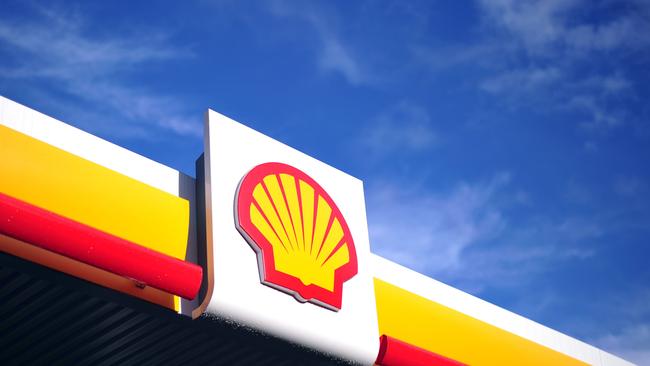
AFP
5.05am: ECB ready to bolster pandemic response
The European Central Bank said it was carefully assessing the evolution of the pandemic and stood ready to take further action in December as surging coronavirus infections darken the economic outlook.
“In the current environment of risks clearly tilted to the downside, the governing council will carefully assess the incoming information, including the dynamics of the pandemic,” it said in a statement.
Based on new forecasts due in December, the bank “will recalibrate its instruments, as appropriate, to respond to the unfolding situation”.
As expected, ECB governors left interest rates unchanged at historic lows and made no tweaks to their 1.35 trillion euro pandemic emergency bond-buying scheme.
AFP
5.00am: US economy surges 33.1pc
After the worst downturn on record, the US economy posted the strongest recovery on record as it expanded at a 33.1 per cent annual rate in the third quarter, the Commerce Department reported.
That came after a 31.4 per cent drop in the April-June period during the worst of the COVID-19 pandemic, and a five per cent drop in the first quarter. The annual rate is a measure that shows the full-year result if the gain in a single quarter were translated over 12 months.
However, compared to the July-September stretch of 2019, the third quarter contracted 2.9 per cent after falling 9.0 per cent year-over-year in the second quarter, according to the data, the first estimate of the results in the latest three months.
“The increase in third quarter GDP reflected continued efforts to reopen businesses and resume activities that were postponed or restricted due to COVID-19,” the Commerce Department said in the release. It noted, however, that the “full economic effects” of the coronavirus cannot be separately measured.
The massive gain -- the biggest since record-keeping started in 1947 -- was driven by a surge in spending by consumers and businesses.
But economists warn that much of that was fuelled by the massive $UD3 trillion in government aid that flooded the economy in the early weeks of the pandemic.
Much of that funding to jobless workers and businesses has run out, and other data show spending tapered off in September and the recovery is losing momentum.
And the gain in the latest quarter was offset by a drop in government spending: federal government spending dropped 6.2 per cent and state and local government fell 3.3 per cent.
AFP
4.58am: New US weekly jobless claims fall
New applications for US jobless benefits fell for a second straight week last week, the Labor Department said, as the world’s largest economy continues to recover from the coronavirus downturn.
The 751,000 new claims were 40,000 below the previous week’s result and the lowest since business shutdowns sent claims spiking in March, indicating a renewed loss of momentum in the unemployment indicator.
AFP
4.55am: Oil price dives 5pc
World oil prices deepened losses to lose five per cent in value, on fears that new coronavirus lockdowns will further decimate demand for crude.
West Texas Intermediate crude for delivery in December, tumbled 5.1 per cent to $35.47 per barrel. London’s Brent North Sea crude for the same month was down 5.0 per cent at $37.16.
AFP
4.50am: China pushes domestic economy, tech power
China’s Communist leadership outlined a five-year vision to develop the country into a powerhouse centred on stronger domestic spending and tech self-reliance, but held back from the usual practice of issuing an overall economic growth target.
Top leaders announced the country’s new economic direction after a four-day conclave in Beijing, with the nation facing intense international pressure including a lingering trade war with the United States and suspicion towards Chinese brands like TikTok and Huawei overseas.
They stressed “high-quality development” over fast-paced growth, with leaders flagging the need to form a “new development pattern” based on strong domestic consumption.
The opaque meetings of China’s leaders are held behind closed doors, with a statement on the decisions only published after the gathering concludes.
The meeting’s communique, released in state media, estimated gross domestic product would exceed 100 trillion yuan ($US14.9 trillion) this year.
But it also warned of an “increasingly complex” international environment and heightened uncertainties.
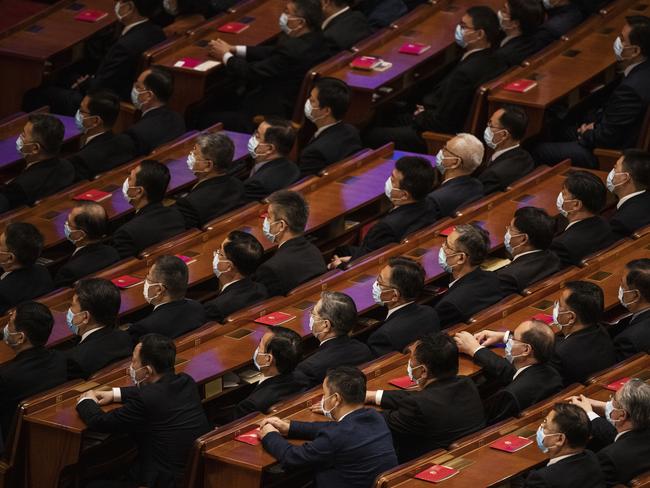
China’s economy plunged 6.8 per cent in the first quarter because of the COVID-19 outbreak, but since then it has recovered and looks set to be the only major economy to achieve growth this year.
Axi chief global market strategist Stephen Innes told AFP that the “constant threat of disruption from Western interests spearheaded by the US administration” was driving China towards domestic consumption.
The plan will now be presented to the country’s rubberstamp parliament -- the National People’s Congress -- for formal approval.
There had been hopes the meeting would flesh out details of President Xi Jinping’s surprise pledge that the country would reach peak carbon emissions by 2030, but the statement was light on details.
The meeting did call for more promotion of low-carbon development, more efficient use of resources and prioritising conservation.
China accounts for a quarter of the planet’s greenhouse gases and has relied heavily on coal to spur development.
The communique said China now aimed to become a “moderately developed” economy by 2035 and brought forward an earlier growth target on per-capita GDP by 15 years.
AFP
4.50am: Spotify back in red as users exceed 300m
Music streaming giant Spotify said its number of monthly active users passed the 300-million-mark in third quarter, even as it plunged back into the red.
Spotfity said in a statement that the number of monthly active users rose by 29 per cent to 320 million in the three months to September, of whom 144 million were paying subscribers, an increase of 27 per cent.
Spotify, headquartered in Stockholm but listed on the New York Stock Exchange, is hoping to reach between 340-345 million monthly active users and 150-154 million paying subscribers by the end of the year.
At the same time, the streaming service said it booked a net loss of 101 million euros ($US118 million) in the June-September period, down from a net profit of 241 million euros a year earlier.
In contrast to many companies, Spotify said it managed to escape much of the economic impact of the coronavirus pandemic, a trend that is set to continue.
“From a content consumption standpoint, global consumption hours surpassed pre-Covid levels during the quarter, and all regions have fully recovered,” Spotify said.
In recent years, Spotify has tried to expand from merely offering music by investing hundreds of millions of euros in podcasting.
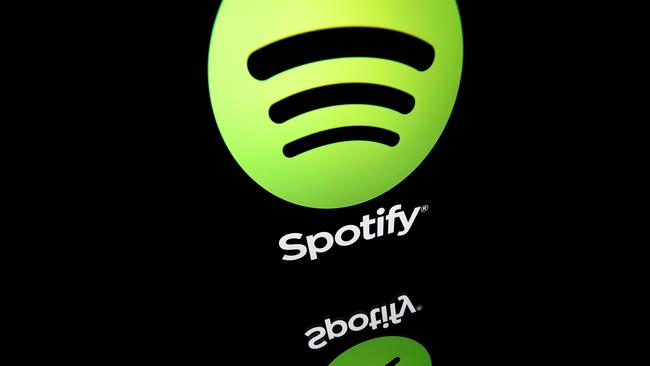
AFP
4.45am: Credit Suisse says profits down 38pc
Credit Suisse, Switzerland’s second-biggest bank, published a 38-percent drop in its third-quarter net profit amid a slowing of its international wealth management activities, missing analyst expectations.
But it acknowledged that its net profit during the third quarter had slumped by more than a third to 546 million Swiss francs ($US599 million, 510 million euros).
It stressed though that the comparative quarter in 2019 had been boosted by a 327-million-franc windfall from the sale of its InvestLab fund platform to the Allfunds Group.
The bank’s net revenue was down two per cent at 5.2 billion Swiss francs. The results were well below the expectations of analysts polled by Swiss financial news agency AWP, who had anticipated seeing a net profit of 620 million Swiss francs on 5.3 billion in revenues during the quarter.
Following the news, the bank saw its share price plunge 5.36 per cent to 8.63 Swiss francs in late morning trading as the Swiss stock exchange’s main SMI index inched up 0.34 per cent.
Credit Suisse’s results were especially dragged down by its international wealth management business, which saw its revenues plunge 20 per cent from a year earlier, due to a drop in investment revenues and “adverse foreign exchange and interest rate movements.” The investment banking sector meanwhile saw revenues swell 11 per cent year-on-year as activities picked up again, especially in Asia.
AFP
4.43am: Airbus flies into red in third quarter
European aircraft maker Airbus said one-off charges related to the deep job cuts announced earlier this year pushed it deep into the red in the third quarter.
Airbus said in a statement that it booked a net loss of 767 million euros ($US900 million) in the period from July to September, compared with profit of 989 million euros a year earlier.
Operating or underlying profit fell by 49 per cent to 820 million euros and revenues declined by 27 per cent to 11.2 billion euros, the statement said.
Earnings were hit by a restructuring charge of 1.2 billion euros related to the decision to axe 15,000 jobs.
And while Airbus said that uncertainty resulting from the coronavirus pandemic prevented it from issuing any earnings forecast for the whole year, it was confident it had stopped the cash haemorrhage seen earlier this year.
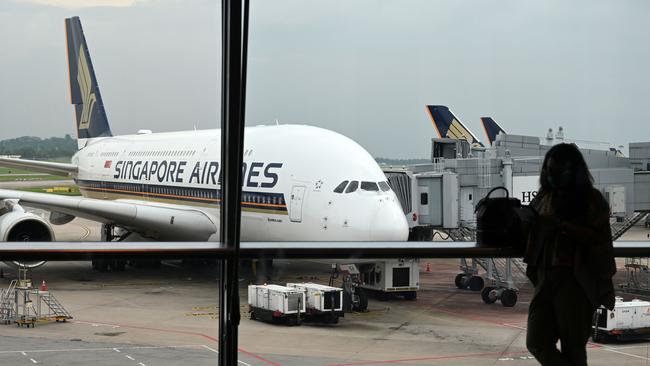
AFP
4.40am: Lloyds swings back to profit
Britain’s Lloyds Banking Group said it rebounded into the black in the third quarter, boosted by an “encouraging” recovery in business demand and lower impairments linked to coronavirus.
Profit after taxation hit £688 million ($US894 million, 761 million euros) in the three months to September, after a net loss of £461 million in the second quarter on COVID-19 fallout, LBG said in a statement.
The group had suffered a net loss of £238 million in the third quarter of 2019 when its performance had been hurt by the credit insurance mis-selling scandal.
Lloyds said that it took an extra £301-million charge linked to virus fallout in the reporting period.
AFP

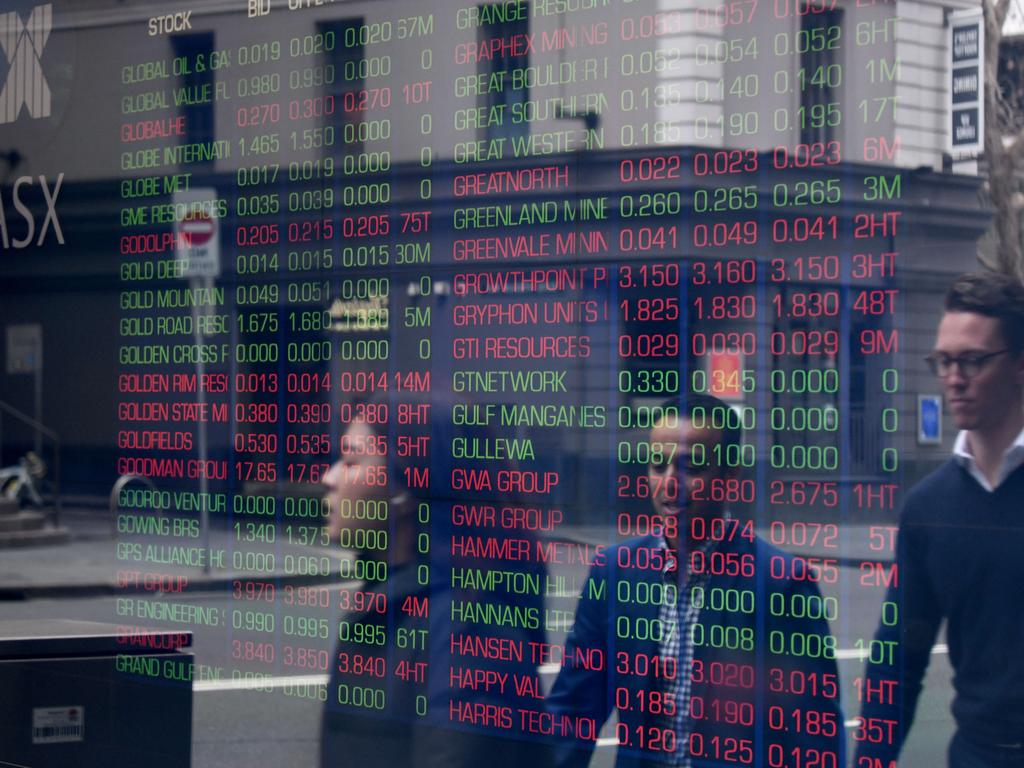


To join the conversation, please log in. Don't have an account? Register
Join the conversation, you are commenting as Logout